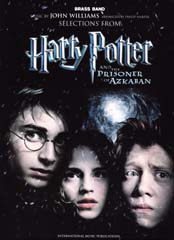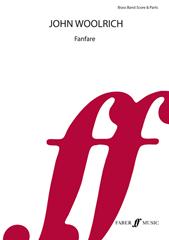We've found 1000 matches for your search. Order by
Results
-
 £108.10
£108.10John Carter - Michael Giacchino - Bertrand Moren
Estimated dispatch 5-14 working days
-
 £26.50
£26.50 -
 £24.95
£24.95JOHN BARLEYCORN (Brass Band Set)
Estimated dispatch 7-14 working days
-
 £26.50
£26.50 -
 £47.60
£47.60JOHN NINETEEN: FORTY-ONE (Brass Band) - Lloyd Webber, Andrew - Richards, Goff
Medium
Estimated dispatch 7-14 working days
-
 £26.50
£26.50 -
 £26.50
£26.50 -
 £38.50
£38.50The Essential Elton John (selection) (Brass Band - Score and Parts)
-
Estimated dispatch 7-14 working days
-
£45.00
Harry Potter and The Prisoner of Azkaban (Score & Parts) - John Williams
Harry Potter and the Prisoner of Azkaban is the third book in the Harry Potter series by author J. K. Rowling. The book was published in 1999 and the film, based on the book, was released in 2004. This is Philip Harper's brass arrangement of a selection of the music from the film. Brass Band Grade 4: Advanced Youth and 3rd Section Duration: 4 minutes
In Stock: Estimated dispatch 1-3 working days
-
£40.00
Fanfare - John Woolrich
This lively Fanfare was composed in 1994 for the brass band of the Guildhall School of Music and Drama Junior Department, which gave the first performance on 4 July 1994.Brass Band Grade 3: Youth and 4th SectionDuration: 4 minutes
In Stock: Estimated dispatch 1-3 working days


